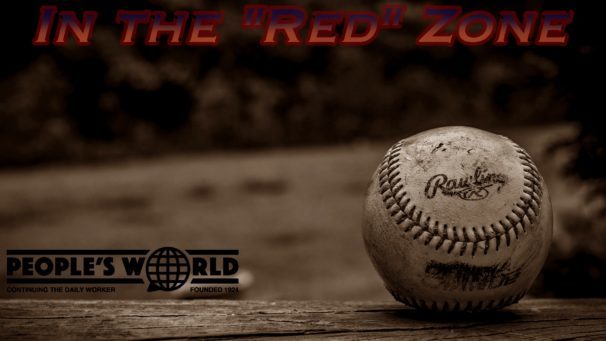
As the U.S. labor movement anxiously awaits the Supreme Court’s decision in the public sector Right to Work case, Janus v. AFSCME, there is a second ruling pending that has drawn the attention of the big four players associations: Christie (State of New Jersey) et al. v. NCAA—a legal challenge to the constitutionality of the Professional and Amateur Sports Protection Act (PASPA).
Passed in 1992, PASPA effectively outlawed sports betting nationwide, excluding only a few states—the sports lotteries in Oregon, Delaware, Montana, and the licensed sports pools in Nevada.
Before PASPA, sports betting was as normal as drinking mint juleps while watching the Kentucky Derby at Churchill Downs racetrack.
A high court ruling in favor of New Jersey would allow states to again legalize sports betting, completely altering the sports business landscape and increasing profits for professional leagues at an unknown cost to players.
Union representatives from the basketball (NBAPA), baseball (MLBPA), football (NFLPA), and hockey (NHLPA) players associations released a joint statement last Thursday, urging caution should PASPA be overturned:
“Given the pending Supreme Court decision regarding the Professional and Amateur Sports Protection Act (PAPSA) [sic], representatives of the MLBPA, NBPA, NFLPA, and NHLPA have been working together on the legal, commercial, practical, and human consequences of allowing sports betting to become mainstream. The time has come to address not just who profits from sports gambling, but also the costs. Our unions have been discussing the potential impact of legalized gambling on players’ privacy and publicity rights, the integrity of our games, and the volatility on our businesses. Betting on sports may become widely legal, but we cannot allow those two have lobbied the hardest for sports gambling to be the only ones controlling how it would be ushered into our businesses. The athletes must also have a seat at the table to ensure that players’ rights and the integrity of our games are protected.”
This isn’t the first time the players associations have spoken out about this issue. All four have been listed as plaintiffs in the Christie v. NCAA repeal case since 2011.
Keep up with the latest in sports and politics with Al Neal’s column—In the Red Zone.
The NBA, MLB, and PGA Tour have all shown support for the legalization of sports betting, going as far as supporting proposed legislation in Indiana that would include a one percent “integrity fee,” that would go to the leagues being bet on and would supposedly be used to ensure proper oversight over match-fixing and point shaving.
“You have keep in mind that betting is happening right now, with illegal black markets and offshore betting, and we don’t have any exposure to what is happening,” PGA Tour commissioner Jay Monahan told USA TODAY Sports: “If it’s legalized and regulated, you get to a point where you can better ensure the integrity of your competitions. You can provide adequate protection for consumers, which doesn’t exist today. There are commercial opportunities for us, which is one of the things we’re here to do, which is to create and maximize playing and financial opportunities for our players.”
Though there is a chance that legalization could provide players with a slight financial benefit, the real question would then become how to determine that increase under the current collective bargaining agreements between the players associations and the leagues.
The only realistic way to tackle such an issue would be at the collective bargaining table. The devil is always in the details of a contract’s fine print.
Since oral arguments ended December 4, 2017, nearly 20 states have introduced sports betting bills.
The next possible date for a ruling from the Supreme Court is April 30.










